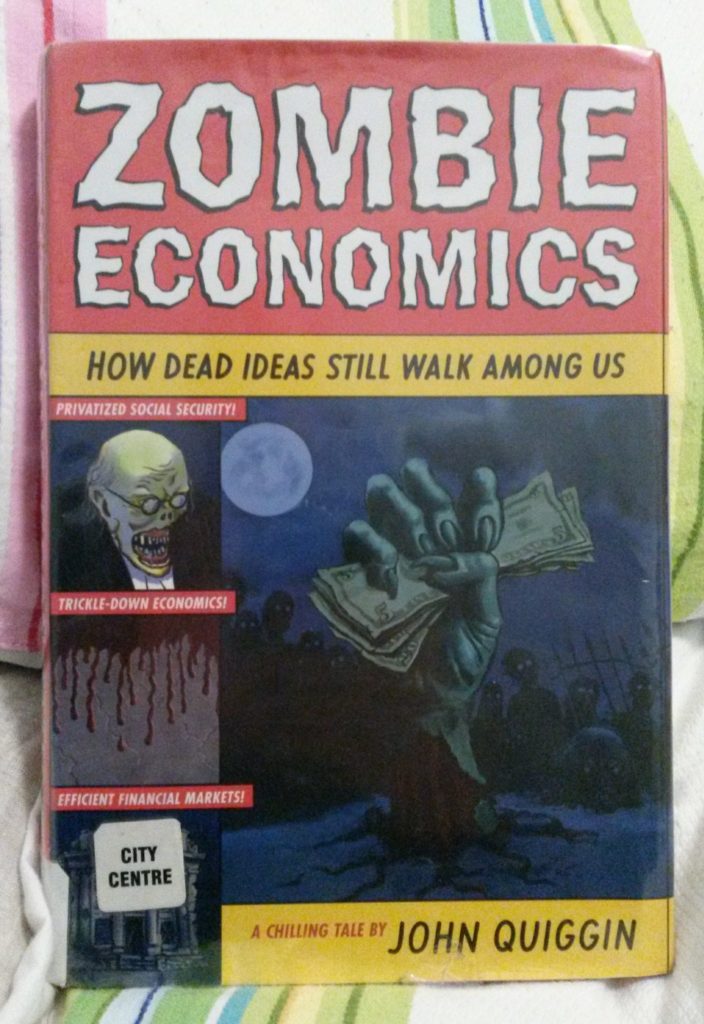
A taste for paradoxical reasoning is common among economists, to the point where it is a job requirement in some circles.
— Zombie Economics, p112
That’s a good summary of this book. It argues that a lot of the foundations of current economic thinking are outdated, and have in some cases been entirely disproved, and yet they still influence policies to everyone’s detriment.
Trickle-down economics has now been thoroughly discredited. An IMF discussion paper says, “The poor and the middle class matter the most for growth via a number of interrelated economic, social, and political channels.” It’s easier and easier to find similar views, even from authorities like the World Bank. Yet we still hear people saying that tax cuts for the rich will benefit the rest of us.
Even Alan Greenspan, formerly the chairman of the US Federal Reserve and the most powerful man in world finance, has admitted that the economic policies that held sway up until the GFC were not the golden bullet he and others had thought. He has said that the laissez-faire system is harmful and needs to be rethought or at least properly regulated. Sadly, the lesser lights who run the show now lack the understanding or will to follow through.
For a more detailed look at the same problem, see the excellent book Debunking Economics. And for a balanced view you can also read the inevitably-named paper Debunking Debunking Economics, available along with other countervailing views on Anti-Dismal. The issues are complex, and I think both sides of the debate are guilty of oversimplifying. If you simplify the right things to the right degree, you can not only demonstrate that you’re right but that the other guy is wrong. But the other guy can do the same thing. In the end the reader has to pick through both sides to figure out what’s really going on. Things should be made as simple as possible, but no simpler.
Anyway, Zombie Economics doesn’t really enter into that debate. It’s easy to understand but still full of challenging and important ideas.